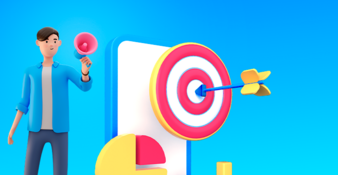Focusing illusion or why this new car is all you need

Once upon a time, a group of German students was given a survey, in which they were asked the following questions:
- How happy are you these days?
- How many dates did you have last month?
The researchers then checked the correlation between the two. It was 0%. Who knows what came to students' minds when they were asked about happiness, but it wasn't the number of dates.
The same survey was given to another group of German students, but the questions were in the reversed order. It looked like this:
- How many dates did you have last month?
- How happy are you these days?
In this case, the correlation not only existed, it was as high as correlations in psychology studies get.
Same results were replicated in the following studies, when the number of dates was substituted for income, relationship with parents, health, or marriage. Even body satisfaction didn't play a role in the self-reported happiness, unless asked about beforehand.
So what happened here?
"How happy are you?" is a difficult question for most people. Even happiness as a concept is not easy to define. It's easy to confuse it with the current mood, and people are often aware of this when answering the question. Or, they aren't aware of this and answer with their current mood state. It's also hard to determine what matters in their lives and what doesn't, and people often feel that is what they have to do before giving an estimate of how happy they are. All in all, this question calls for cognitive effort.

When you're asked about your love life or finances or health beforehand, everything changes. Your attention shifts to these, obviously important aspects of your life, and doesn't feel the need to bother with an evaluation of something bigger. It may also affect your mood: a second ago you felt confident and generally good about yourself, and suddenly you remember that you've been single for a while and haven't had any dates for just as long. At this point most people get distracted, mind goes into the "why, is there something wrong with me, am I not pretty/smooth/tall enough" area and forgets the happiness question alltogether. Self-esteem goes down, the good mood vanishes. Obviously, the opposite effect can happen just as easily.
In this case your brain substitutes a difficult question about happiness with an easy question about the number of dates, and gives you the answer, which is wrong, but not quite obviously so.
Substitution is in the core of selling.
Consider stock investements. "Should I invest in Ford stock?" is surely a difficult question. "Do I like Ford cars?" is, on the other hand, a much simpler one. What, do you think, would yield better results: trying to prove investing in Ford stock will be profitable or reminding the prospect that she likes Ford cars? Whatever you think, it's the latter.
Why does this happen?
Focusing illusion

Behind substitution and many other problems and possibilities of our lives is the focusing illusion. When people focus on any single factor, be it love, money, a new fridge, a holiday destination, etc. it suddenly becomes all they need, or at least they exaggerate its importance heavily. Basically, as Kahneman put it:
Nothing in life is as important as you think it is when you are thinking about it.
In one of the pioneering studies on the topic, students in Midwest and Southern California were asked to rate their life satisfaction as well as different aspects of their life for either themselves or someone similar to themselves in the other region. The self-reported life-satisfaction was the same for people from Midwest and Southern California. However, participants who rated a similar other, expected Californians to be more satisfied than Midwesterners. Climate was rated as more important for someone living in another region than for someone in one's own region - it's an easily observed difference that people tend to focus on. But in reality, it doesn't make much difference to people's life satisfaction.
Similarly, we tend to believe that people who are rich are happier than average and people who have disability are less happy than average. Self-reported results don't show either, because people don't think constantly about their money or their health. Don't get me wrong, the difference in the happiness level between those who have very low income and those who have very high income exists, but that's as far as it gets. There is barely any difference between the highest income group and those in the $50,000-89,999 bracket.
How focusing illusion is used in marketing
Focusing illusion is a gift for marketers. Who hasn't felt that they "need" something to the point that this product or service will make them happy, that they are incomplete without it? Whether people understand that or not, in most cases they exaggerate the effect the product will have on their lives. That is why, marketers attempt, or should attempt, to sell hapinness, not the product's features, focus customer's attention on how the product will help them get there, and build anticipation.
By focusing on the product, marketers create a "gap" to be filled. Closing the gap feels like finding closure, and our brain appreciates that and releases its portion of dopamine to make us happy for a little bit.
At the same time, anticipating something is more exciting than having it. We're focused on the product now, while we anticipate - we overestimate the attention it'll get when it will be ours. Your social media platforms, campaigns, and posts should focus on just that - building anticipation.
Whether you're marketing your product or trying to avoid unnecessary purchases yourself, keep the focusing illusion in mind. It's one of the fundamental biases that guide our everyday behavior.













